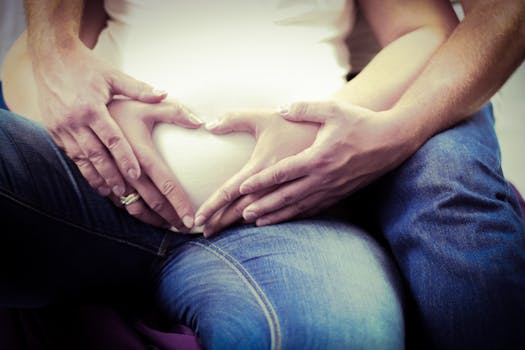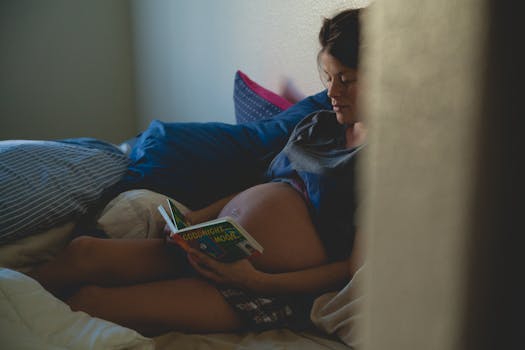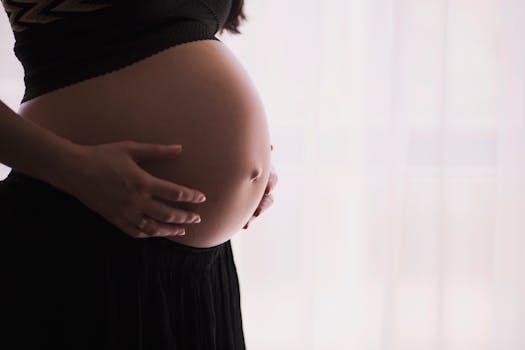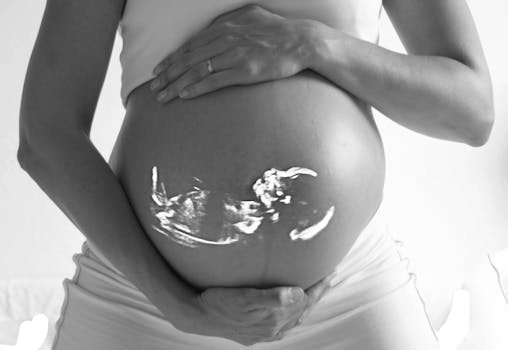Pre-eclampsia is a pregnancy complication characterised by high blood pressure and signs of damage to other organ systems, usually to the kidneys.
Pre-eclampsia usually begins just after 20 weeks of pregnancy, typically in a woman whose blood pressure had been relatively normal.
It is important to note that even a slight rise in blood pressure could be a sign of pre-eclampsia.

What are the symptoms of pre-eclampsia?
Pre-eclampsia does not always result in noticeable symptoms, especially in its early stages, and symptoms can also vary from woman to woman.
Some symptoms of pre-eclampsia - such as swelling, nausea, and weight gain - can seem like the usual pregnancy complaints, so it's important to be aware of any potential warning signs:
- Noticeable swelling in your face, or puffiness around your eyes.
- More than slight swelling in your hands.
- Sudden or excessive swelling of your feet or ankles.
- Weight gain of more than four pounds in a week.
- Severe or persistent headache.
- Vision changes, including double vision, blurriness, seeing spots.
- Intense pain or tenderness in your upper abdomen.
- Difficulty breathing.

How is pre-eclampsia diagnosed?
Your doctor will check your blood pressure and urine, and you'll get a diagnosis of pre-eclampsia if your blood pressure is elevated and you have protein in your urine.
Even if you don't have protein in your urine, an elevated blood pressure may prompt more tests, which will examine the following:
- High blood pressure
- Protein in urine
- Protein-creatinine ratio

What causes pre-eclampsia?
Pre-eclampsia is caused by reduced blood flow to the placenta, that begin early in pregnancy, well before any symptoms become evident.
There is also evidence that changes in blood flow to the placenta can trigger the release of high levels of certain proteins into your bloodstream.
This can set off a complex chain of reactions that includes:
- Constricted blood vessels.
- Damage to the vessel walls.
- Reduced blood volume.
- Changes in blood clotting.

What complications occur from pre-eclamsia?
- Lack of blood flow to the placenta.
- Placental abruption.
- Cardiovascular disease.
- Eclampsia.
How is pre-eclampsia treated?
Medications to lower blood pressure
These medications, called antihypertensives, are used to lower your blood pressure if it is dangerously high.

Corticosteroids
If you have severe pre-eclampsia or HELLP syndrome, corticosteroid medications can temporarily improve liver and platelet function to help prolong your pregnancy.
Anticonvulsant medications
If your pre-eclampsia is particularly severe, your doctor may prescribe an anticonvulsant medication, such as magnesium sulfate, to prevent a first seizure.

Bed rest
Bed rest used to be routinely recommended for women with pre-eclampsia.
Hospitalisation
Severe pre-eclampsia may require that you be hospitalised. Your doctor will perform regular non-stress tests to monitor your baby's well-being, and to measure the volume of amniotic fluid.





